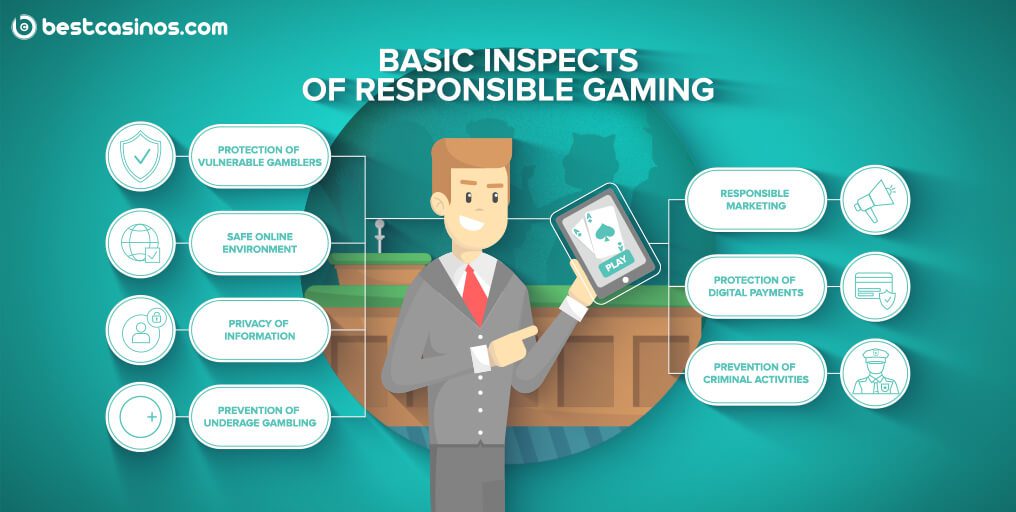
How Will UKGC Regulation Changes Influence Casino VIP Programs
If you have at least once visited an online casino, you probably know about VIP programs. We often mention the fantastic deals digital venues offer to their loyal and/or potential players.
From the moment you step in a digital casino site, you meet a plethora of intriguing deals. They are all designed to accommodate you and boost your casino experience. They come in various shapes and sizes – promotions, complimentary points, cashback deals and, of course, VIP programs. While most of these deals apply to all players, the VIP programs accommodate only the most loyal players. These players often have extensive betting tendencies, with large deposits and high-limit stakes. That is why the VIP clubs typically offer exclusive benefits to high rollers.
Recently, the news broke that the UK’s head regulatory body the UK Gambling Commission might ban VIP programs in casinos. The speculated decision is the product of the initiative to promote responsible gambling. By banning exclusive programs that encourage players to spend more, the UKGC can ensure the safety and prevention of harmful behaviour.
Of course, responsible gaming is one of the most critical questions in our industry. The protection of the players, especially those that are at risk, is paramount. However, as the potential ban of exclusive offers gains momentum, two questions arise. Is banning lucrative deals a wise decision? And how will it affect the player community? Let’s discuss this.
The Alluring Nature of VIP Deals
The problem that the UKGC has with these programs lies in their nature. At their core, casino VIP bonuses serve as encouragement for you to play more. Most players consider this an excellent thing. Arguably, most of these players know how to control their gambling activity and closely monitor their expenditures. For them, massive bonuses and VIP levels come as a compliment, because they complete their privileged casino adventures. Nevertheless, each story has another darker side. Numerous players lack this kind of self-awareness. This is a fact that worries everyone involved in the industry. They find it hard to resist the alluring nature of casino gaming, especially when it becomes excessive. When gaming starts interfering with their everyday lives, it might be too challenging to cease. And for them, the UKGC decided to put a stop to these offers.
However, this decision to restrict the casino VIP programs has a background. For those who are actively involved in the industry, it’s not a surprise. Casino VIP programs have been a controversial topic for quite some time.
Now, let’s talk about the most recent events that directly led to this. The Gambling Commission conducted a study of casino players in the UK last year. The results of the study revealed that a significant portion of the casino revenue comes from VIP players. Although there aren’t many of them, they contribute to operators’ profits the most.
What worries the Commission is that not all licensed operators act by the rules for incentives. The incentivisation of high-value customers is an important issue not to be taken lightly. The programs must exist in a manner that is consistent with the licensing objectives. The three main goals are to make gambling fairer, safer, and crimefree.
VIP Casino Bonuses for Loyalty
Loyalty programs and VIP clubs are two trademark elements of premium casino entertainment. They serve a rather straightforward purpose: complimenting players by creating a comfortable environment for them. Treating players with privileged deals means caring for them most particularly. And the players feel that and appreciate it. Once they find a venue that suits them perfectly, high-limit players are less likely to trade that for something different.
There are various types of casino loyalty programs. They vary from casino to casino. Each digital venue aims to create a unique offer to distinguish itself from the competition.
In most cases, the casino VIP benefits will include Free Chips, coins, and Free Spins. There are other perks, too. Some casinos provide luxurious VIP treats such as access to elegant events and free vacations in exotic places. But how do casinos know that someone is VIP-worthy? The answer is through dedication and close inspection of gambling activity.
As players enjoy their games, the casino carefully studies their gaming preferences. If you consistently return to the same game type, the management will notice and save the info for later. After a while, you might see that the offers are getting more and more personal, i.e. tailored to your tastes. There is a straightforward explanation for this. The casino made it special just for you. The VIP programs are how casino awards VIP bonuses to loyal players.
This is precisely why high rollers (players with high-limit tendencies) receive these bonuses and perks. They always know that the casino takes care of them and respects their tastes. Furthermore, it provides exquisite custom-made entertainment. And who could say no to that?
(IR)RESPONSIBLE BANKING
Amid the puzzle surrounding the potential ban of VIP clubs, another restriction was indeed confirmed. Come April 14th, the UK casino operators will exclude credit cards from their banking options list. For many players, this is a big blow.
However, many organisations seem to agree with discrediting credit cards. Who is right?
Well, that question is difficult to answer. What we know for now is that this shift will undoubtedly place focus on other banking options. The UKGC announced the decision to ban credit cards to prevent players from losing “money they do not have”. As soon as the news broke, support from other countries started to pour in. Ireland is the first country that announced plans to outlaw credit cards in online casinos. To a certain extent, that sounds perfectly logical. The only issue with this topic is practicality. Is this helpful? And how practical is it for curbing problem gambling?
The Cards Are Off the Table
Credit cards are very popular with casino players. Many players opt for them because they are comfortable, fast, and flexible. Nowadays, you will hardly find a casino that doesn’t offer them. There are even casinos that offer only credit cards – so you can see how popular they are. Before e-wallets and cryptocurrencies, gamers mostly relied on credit cards. They are a perfect suit for a regular casino player. Moreover, they offer you a chance to withdraw your money whenever you like. As you might know, that is still not possible with most other options.
There is also the fact that these credit cards support other payment options. A variety of e-wallets are built on the foundation of credit cards. By banning credit cards, players will have only one choice – use something else.
But the move to ban them will undoubtedly influence the players. Just like VIP programs, their restriction will affect the community – as well as the gaming sites. Experts predict that the most probable outcome is a simple switch to other services. This way, they will remain in their favourite casinos, playing as usual, only with other banking options. Other options that are expected to take the mantle are e-wallets. It is also predicted that we might see a rise in the popularity of cryptocurrencies.
Responsibility in Gaming

Responsible gaming consists of a set of regulations that are used in every market. The global gaming industry is a diverse ecosystem composed of many separate markets. Although rules are not the same in each market, they all share the basic concepts. The main aspects of responsible gaming are:
- Protection of vulnerable gamblers
- Safe online environment
- Privacy of information
- Prevention of underage gambling
- Responsible marketing
- Protection of digital payments
- Prevention of criminal activities
Of course, as all branches of entertainment, casinos are meant to be places for fun. But we must remember that the casino industry is also very delicate. Playing these types of games inevitably comes with a certain level of risk for casino enthusiasts.
UKGC as the Champion of Change
In the UK, the main regulatory body for gambling is the Gambling Commission. The Commission makes sure that all regulations and laws are followed by all licensed operators – without exceptions.
Last couple of years, interest in the questions of the safety of the punters increased. The industry is evolving, and new threats arise with the expansion of online gambling activity. More and more players turn to online gaming, especially in the UK. The project GAMSTOP was brought to help with gambling addiction as well. Players can opt for self-exclusion if they realize that their gambling activity is getting out of hand. But the project alone is not enough. That is why the UKGC is continuously initiating new projects and fortifying the existing framework.
It is not clear how helpful will these two bans prove to be. But credit must be given where credit is due. That means that both decisions – the confirmed and the hinted one – are excellent ways to protect the industry. Radical changes that the UKGC has introduced over the past few years are already yielding results. The Commission is a true champion of social responsibility. In other words, it acts as the main barrier between the vulnerable players and the great hazards of excessive gambling.
Conclusion
Now that we explored both the good and the wrong sides of casinos, it is time to gather our impressions. The first thing that we are sure of is that these decisions will undoubtedly leave consequences on everyone involved.
For starters, the operators (and consequently, the providers) have already felt the repercussions of these changes. Reports suggest that, in some companies, shares fell as soon as the UKGC announced the decision. Predictions about the upcoming months suggest a possible reduction of credit ratings, as well as lower revenue.
As operators brace for massive losses, we are wondering what will happen with the players. As we have seen, the credit card ban could push them to seek other types of banking services. Some will turn to e-wallets, others will start using cryptocurrencies. However, the question of risk mitigation remains open. No one knows how many of them will reduce their asset deposit thanks to this ban.
On the other hand, the UKGC is yet to confirm the prohibition of VIP loyalty programs. For now, that is just a possibility. The Commission has the right to change the decision and instead only impose stricter regulations for VIP casino incentives.
But, if that happens, things might get much worse. If regulated casinos lose the chance to offer VIP specialities, disgruntled players might turn to unregulated sites. These illicit gaming halls are out of reach of the Commission, which means it cannot provide protection for the players. So instead of banning them, the UKGC should maybe try to redefine them to fit a robust regulatory framework. After all, they are a source of entertainment for many players. They need to provide enjoyment, but of course, safely and reliably.













BestCasinos team consists of online casino experts dedicated to spreading their knowledge and experience to a wider audience, all in effort to help even the most inexperienced players gain their footing in this exciting industry.